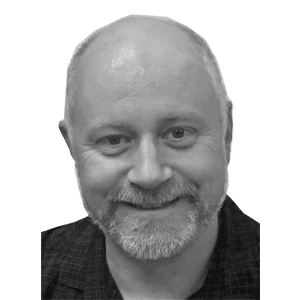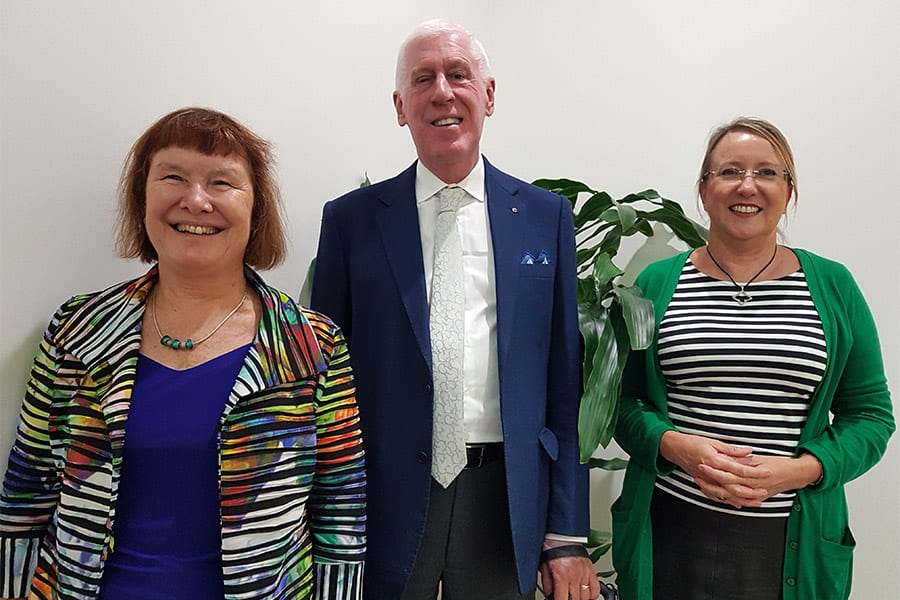Mid North Coast and Northern NSW communities will benefit from the recent appointment of two new board members at Healthy North Coast.
As well as announcing Dr Adrian Gilliland as the newly elected Chair and Dr Caroline Hong as Deputy Chair, Healthy North Coast is excited to welcome local residents Kerry Stubbs and Graeme Innes to the Board of Directors.
Kerry is Deputy Chancellor of Western Sydney University. She has previously been CEO of Northcott, one of Australia’s largest not-for-profit disability service organisations, and Executive Director of St Vincent’s Hospital Sydney.
Graeme is a well-known human rights lawyer and former commissioner at the Australian Human Rights Commission for almost a decade. He was Australia’s Race Discrimination Commissioner for three years and has more than 40 years of board, finance and business management experience.
Both share a deep passion for the health sector and are keen to contribute to their local communities.
“I have had a lot of experience in community health services, disability and mental health services, and in palliative care. I’m also particularly interested in Aboriginal health issues and initiatives,” Kerry said.
“I believe I can contribute something of value in understanding those issues from both the provider’s and consumer’s side.”
Graeme said he is looking forward to bringing his knowledge and skills to Healthy North Coast. “Health is a critical issue in all of our lives and the pandemic has really brought that to the top of everyone’s mind.
“I hope that I can bring a deep knowledge of the community sector, experience in governance, and a wide network of connections at all levels of state and federal government to the organisation.”
Healthy North Coast CEO Julie Sturgess said she was delighted to be welcoming Graeme and Kerry. She said their expertise in the fields of law, social justice, advocacy, and high-level government and administration would add value and diversity to the organisation’s strategic direction.
“They will add to the richness of experience of our other board members – a specialist anaesthetist, a dentist, two GPs, and a senior public administration executive,” she said.
“Together, they will help Healthy North Coast continue its drive to take a leading role in the ongoing health reform and improvement that is clearly needed in our region and nation.
“We will strive to succeed in not just ‘meeting’ but ‘exceeding’ our goal of delivering the Primary Health Network program in our regional footprint, from Port Macquarie to Tweed Heads, and to the foothills of the New England Tableland.
“We believe our communities are the ultimate beneficiaries of Healthy North Coast’s successes and we are immensely proud to be delivering the PHN program.”
Pictured: New Healthy North Coast Board members Kerry Stubbs and Graeme Innes with CEO Julie Sturgess.
Healthy North Coast is pleased to announce the board elections of Dr Adrian Gilliland to Chair and Dr Caroline Hong to Deputy Chair.
 Dr Gilliland joined the Healthy North Coast Board in October 2019. A GP and co-owner of Coffs Medical Centre, Dr Gilliland’s previous roles have included Chair of Healthy North Coast’s Mid North Coast Clinical Council, Board member of the Mid North Coast Division of General Practice, Clinical Advisor of Primary and Integrated Care for Capital and Coast District Health Board in Wellington, New Zealand.
Dr Gilliland joined the Healthy North Coast Board in October 2019. A GP and co-owner of Coffs Medical Centre, Dr Gilliland’s previous roles have included Chair of Healthy North Coast’s Mid North Coast Clinical Council, Board member of the Mid North Coast Division of General Practice, Clinical Advisor of Primary and Integrated Care for Capital and Coast District Health Board in Wellington, New Zealand.
As the new elected Chair of Healthy North Coast, I would like to thank the Board and wider community for their confidence in my election as Chair. I would like to welcome our new Board members Kerry Stubbs and Graeme Innes, as well as the election of our Deputy Chair, Caroline Hong, who bring a wealth of experience in corporate and community governance and a passion for advancing healthcare in our community.
I look forward to serving our local community and clinicians to work together to improve the health and wellbeing of all of our community.Dr Adrian Gilliland, Healthy North Coast Board Chair
 Dr Hong joined the Healthy North Coast Board in May 2020. Dr Caroline Hong has a Bachelor of Dental Surgery, Graduate Diploma of Health Administration, and a Master of Health Administration. She is a Board Trustee of the St Vincent’s Clinic Foundation and has been in that role supporting healthcare and medical research since 2012.
Dr Hong joined the Healthy North Coast Board in May 2020. Dr Caroline Hong has a Bachelor of Dental Surgery, Graduate Diploma of Health Administration, and a Master of Health Administration. She is a Board Trustee of the St Vincent’s Clinic Foundation and has been in that role supporting healthcare and medical research since 2012.
I am thrilled to be appointed as Deputy Chair of Healthy North Coast. With 38 years of experience in the healthcare sector, covering community health, allied health, executive and board management in government, community, association and private healthcare settings, I am excited to bring valuable and broad experience to the north coast region, supporting the Chair, Dr Adrian Gilliland, and the Board of Directors in providing leadership for the vision of Healthy North Coast.
I am a strong advocate for diversity and inclusion, at all levels. Since I was appointed as Director last year, and being part of the Nominations Committee then, I have seen a very robust process to ensure that we have the best people with the right skills mix on our board.
I am very pleased to welcome Dr Graeme Innes and Kerry Stubbs, both of whom have strong skills that we require as a Board to take the organisation forward in a challenging environment, and staying true to our vision of why we exist — “healthy people in the north coast”.Dr Caroline Hong, Healthy North Coast Board Deputy Chair



